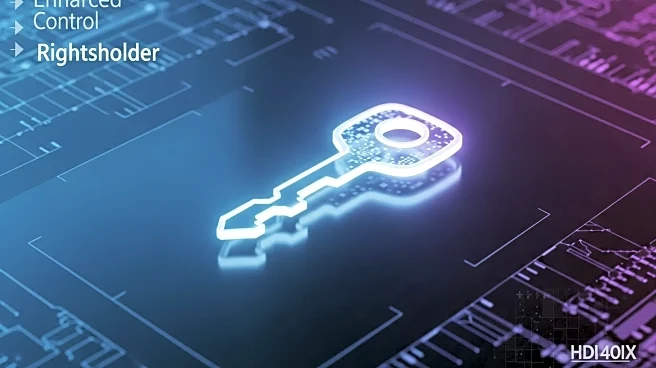What is the story about?
What's Happening?
OpenAI CEO Sam Altman has announced that the company will provide rightsholders with more control over the use of their characters in AI applications. This decision comes in response to backlash over the use of copyrighted characters without sufficient oversight. Altman emphasized the importance of allowing creators and users to have a say in how their digital characters, memory, and identity are utilized. The move is seen as a step towards more user-controlled AI, where ownership and transparency are prioritized. OpenAI's approach aims to address concerns about the top-down imposition of restrictions and instead promote a model where AI is shaped by the users themselves.
Why It's Important?
The decision by OpenAI to grant more control to rightsholders is significant in the context of ongoing debates about intellectual property rights in the digital age. As AI technologies become more integrated into various sectors, the need for clear guidelines on the use of digital characters and content becomes crucial. This move could set a precedent for other AI companies, potentially leading to industry-wide changes in how digital rights are managed. For creators, this development offers a chance to protect their intellectual property and ensure that their creations are used in ways that align with their intentions. It also highlights the growing demand for transparency and user empowerment in the AI landscape.
What's Next?
The implementation of these changes by OpenAI could lead to further discussions and potential policy developments regarding digital rights management in AI. Stakeholders, including creators, legal experts, and AI developers, may engage in dialogues to refine the balance between innovation and intellectual property protection. Additionally, other AI companies might follow suit, adopting similar measures to address concerns about the use of copyrighted material. The response from the creative community and legal entities will likely influence the pace and nature of these changes.
Beyond the Headlines
This development touches on broader ethical and legal implications of AI technology. As AI systems become more sophisticated, the question of who owns and controls digital identities becomes increasingly complex. The move by OpenAI could prompt a reevaluation of existing copyright laws and their applicability to AI-generated content. It also raises cultural questions about the role of AI in creative processes and the extent to which technology should be allowed to replicate or transform human creativity.















